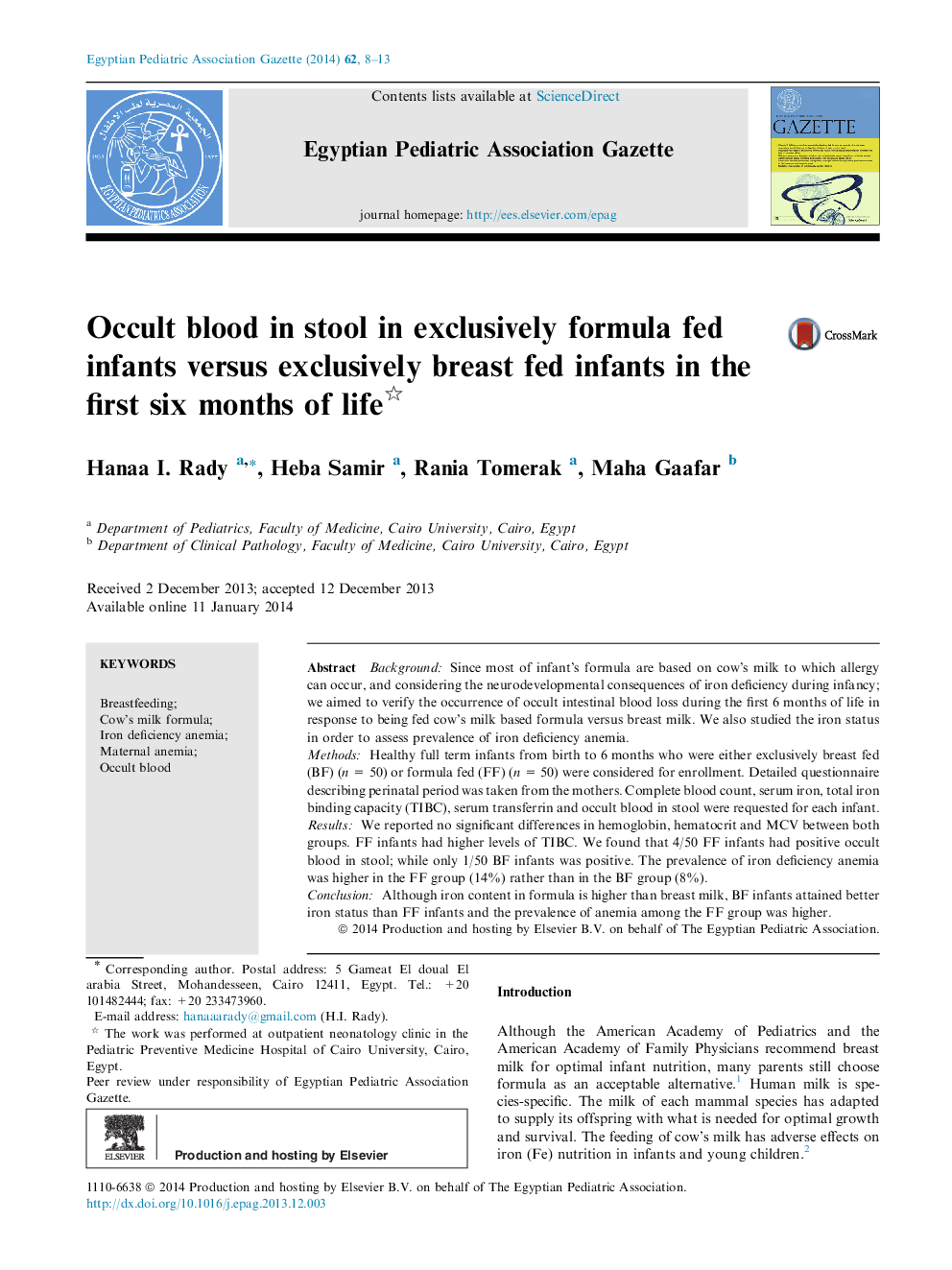| Article ID | Journal | Published Year | Pages | File Type |
|---|---|---|---|---|
| 4153643 | Egyptian Pediatric Association Gazette | 2014 | 6 Pages |
BackgroundSince most of infant’s formula are based on cow’s milk to which allergy can occur, and considering the neurodevelopmental consequences of iron deficiency during infancy; we aimed to verify the occurrence of occult intestinal blood loss during the first 6 months of life in response to being fed cow’s milk based formula versus breast milk. We also studied the iron status in order to assess prevalence of iron deficiency anemia.MethodsHealthy full term infants from birth to 6 months who were either exclusively breast fed (BF) (n = 50) or formula fed (FF) (n = 50) were considered for enrollment. Detailed questionnaire describing perinatal period was taken from the mothers. Complete blood count, serum iron, total iron binding capacity (TIBC), serum transferrin and occult blood in stool were requested for each infant.ResultsWe reported no significant differences in hemoglobin, hematocrit and MCV between both groups. FF infants had higher levels of TIBC. We found that 4/50 FF infants had positive occult blood in stool; while only 1/50 BF infants was positive. The prevalence of iron deficiency anemia was higher in the FF group (14%) rather than in the BF group (8%).ConclusionAlthough iron content in formula is higher than breast milk, BF infants attained better iron status than FF infants and the prevalence of anemia among the FF group was higher.
